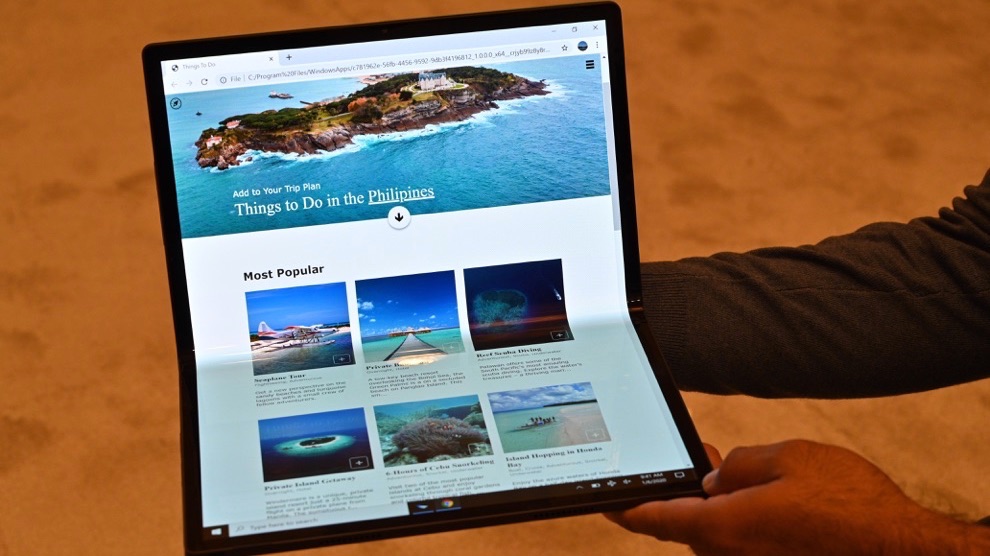Foldable Devices Poised To Pounce in 2020
Intel’s new Tiger Lake processor will power a variety of multi-screen and foldable devices ushering a new future for our portable devices

By Goji Zang
Published on Jan. 7, 2020
Samsung’s Galaxy Fold didn’t crack many people’s top devices list for 2019, but the technology is coming. Often overlooked is that processors need to keep up, not just those screens and folding mechs.
At the 2020 Consumer Electronics Show in Las Vegas, Intel has declared the solution: the Tiger Lake processor.
The processor is the centerpiece of the company’s latest concept device which includes a foldable OLED display form factor and is code-named “Horseshoe Bend.” The design is similar in size to a 12-inch laptop with a folding touchscreen display that can be opened up to more than 17 inches.
Tiger Lake is a key to Intel’s future plans for mobile computing to life. Optimizations span the CPU, AI accelerators and discrete-level integrated graphics based on the new Intel Xe graphics architecture. As a result, Intel says Tiger Lake will deliver double-digit performance gains, massive AI performance improvements, a huge leap in graphics performance and four-times the throughput of USB 3 with a new integrated Thunderbolt 4. Built on Intel’s 10nm+ process, the first Tiger Lake systems are expected to ship later this year.
These new chips are for larger foldable devices like the Horseshoe Bend prototype which are much larger than current foldable devices: mostly phones. The Horseshoe Bend device at 17 inches is bigger than most laptops and nears the size of some external monitors.
"Our drive to infuse intelligence into every aspect of computing can have positive impact at unprecedented scale...” Intel CEO Bob Swan
The other part of Intel’s vision of the future of mobile also got some love at CES: Project Athena. More than just a new design, it is more like an architecture philosophy combined with specifications in order to speed up devices, make them lighter and provide more operating time through efficiencies in software, hardware and batteries.
Originally announced last year at CES, there are now 25 verified Project Athena designs in the market, and Intel Executive Vice President Gregory Bryant says an expanded partnership with Google has already resulted in the first two Project Athena-verified Chromebooks, the ASUS Chromebook Flip (C436) and the Samsung Galaxy Chromebook. Intel expects to verify approximately 50 more designs across Windows and Chrome this year and deliver a target specification for dual-screen PCs.
“At Intel, our ambition is to help customers make the most of technology inflections like AI, 5G and the intelligent edge so that together we can enrich lives and shape the world for decades to come. As we highlighted today, our drive to infuse intelligence into every aspect of computing can have positive impact at unprecedented scale,” said Intel CEO Bob Swan.
The foldable future is not just coming in 2020, it is already here.
Most Popular

About Us
Login
Contact Us
Subscribe
Advertise With Us
Copyright 2010 to 2020 Modern Times Magazine and Modern Communications. All Rights Reserved.
Terms of Service
Privacy Policy

Login
About Us
Contact Us
Subscribe
Advertise With Us
Copyright 2010 to 2020 Modern Times Magazine and Modern Communications. All Rights Reserved.




